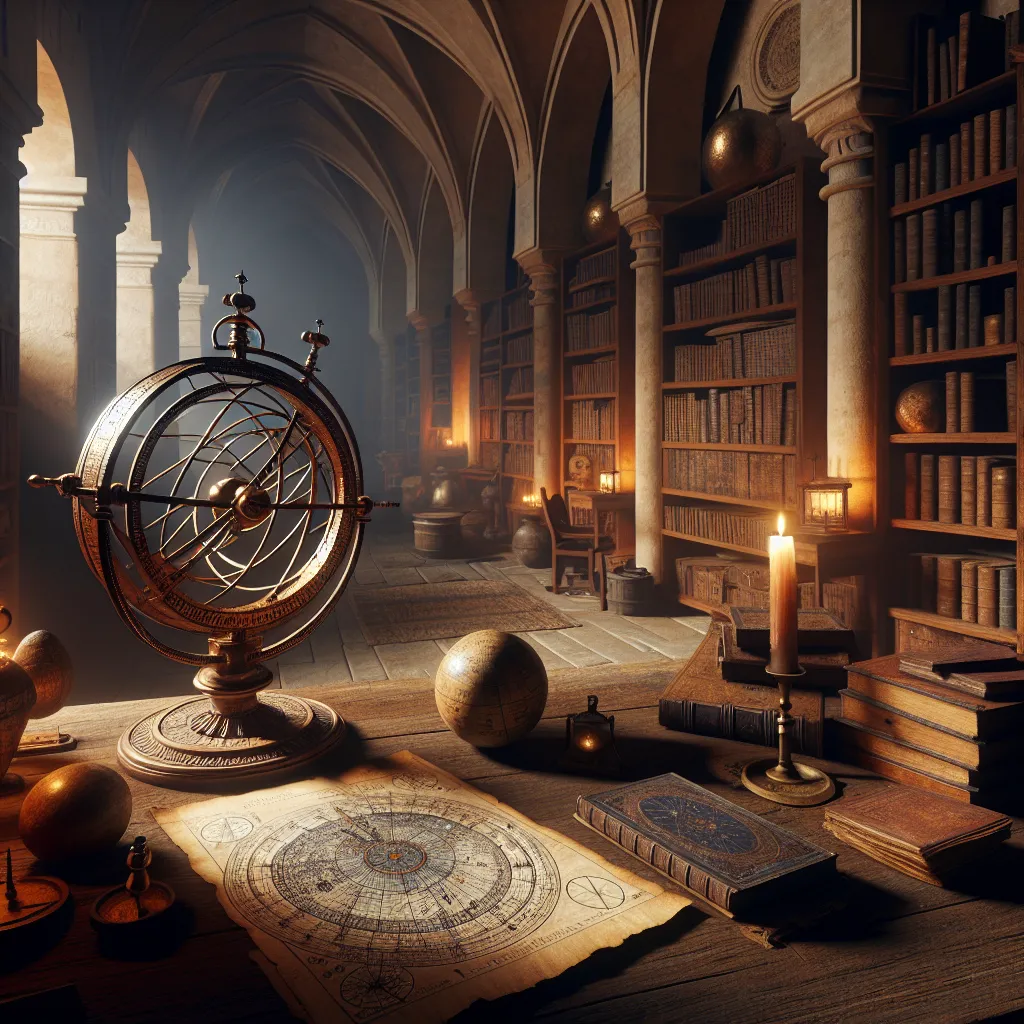History of Astronomy
History of Astronomy
 Description: An ancient astronomical instrument used to track celestial objects.
Description: An ancient astronomical instrument used to track celestial objects.
Astronomy, the study of celestial objects and phenomena, has fascinated humans for millennia. This section delves into the key developments and figures in the history of astronomy, from ancient civilizations to contemporary discoveries.
Ancient Astronomy
- Babylonian Astronomy: The Babylonians made some of the earliest recorded observations of celestial bodies, developing a lunar calendar and predicting solar and lunar eclipses.
- Greek Astronomy: Greek philosophers like Aristotle and Ptolemy developed geocentric models of the universe, which dominated astronomical thought for centuries. However, Aristarchus proposed a heliocentric model long before it was widely accepted.
- Mayan Astronomy: The Mayans created sophisticated calendars and tracked the movements of planets with remarkable accuracy, integrating their astronomical knowledge into their architecture and rituals.
Medieval and Renaissance Astronomy
- Islamic Golden Age: Astronomers such as Al-Battani and Al-Sufi made significant contributions, refining earlier models and developing new astronomical instruments. Their works were later translated and influenced European astronomy.
- Copernican Revolution: Nicolaus Copernicus revived the heliocentric model, challenging the long-held geocentric view. This revolution was furthered by Johannes Kepler’s laws of planetary motion and Galileo Galilei’s telescopic observations.
Modern Astronomy
- 17th to 19th Century: The invention of the telescope allowed astronomers like Galileo, Isaac Newton, and William Herschel to make groundbreaking discoveries. Newton’s law of universal gravitation provided a framework for understanding celestial motions.
- 20th Century to Present: The discovery of the expanding universe by Edwin Hubble, the development of radio astronomy, and the advent of space telescopes like Hubble have vastly expanded our knowledge of the cosmos. Modern astronomy continues to explore phenomena such as black holes, dark matter, and exoplanets.
Further Reading
For more detailed information on the history of astronomy, you can explore the following resource: